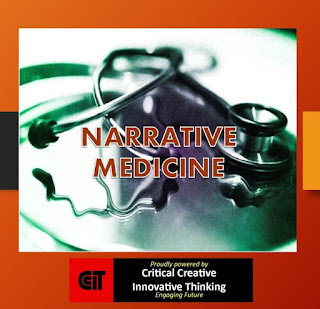God Complex in Doctors by Muhammad Akbar Baig (guest writer)
“What the hell are you
doing doctor, are you insane?” shouted the consultant at his trainee who was
presenting a case, while standing in the resuscitation bay of the Emergency Department
(ED), surrounded by nurses, patients and their family members. I was shocked
and intimidated while observing this man scold a trainee doctor. He was tall,
dressed formally in a red tie and a pristinely white starched lab coat. One
look at him and anybody would have quickly noticed that he exuded authority.
The poor trainee, visibly shaken, was trying to hold on to the medical files
and other instruments from slipping out of his hands. He was also trying dearly
to hold on to his wits, I could tell.
The ED is a dynamic place
that sees several consultants at any one time, called there for expert opinion
on patients. But the ones that catch my attention the most tend to be the
crankiest and meanest of the lot. How they cope with their lives outside of the
hospital mystifies me.
Being the ED supervisor
at that time, I followed this particular attending as he went up to another
patient on whom he was consulted. There I observed an unexpected dynamic. The
patient who had presented with respiratory distress, was in a terminal stage of
irreversible lung disease secondary to excessive smoking. Now the poor soul
could do nothing other than visiting the ED every few weeks whenever his
breathing problems exacerbated. I leaned over the nearby nursing counter in order
to listen to what the attending had to say after his evaluation.
“I think you would have
saved us a lot of trouble if you did not do this to yourself. You are too sick
for us to save now.”
Silence crept over his
team, the kind which overshadows whenever tragic news is broken within the
hospital. I cannot even claim what the
patient and his family must have felt after hearing those words. The attending consultant
grabbed the patient’s file from the resident’s hand, hurriedly wrote in it, and
then rushed away as if he had some emergency to attend. The patient’s family was
left behind in the lurch, with several questions still etched on their faces.
It took a while for this to sink in, followed by pandemonium! They were rightly
enraged with what the consultant had said to them. But the sad part is they took
out their anger and frustration on the patient’s nurse, the area doctor and
administrative staff. They screamed at the top of their lungs, demanding
another professional who would at least have the courtesy to speak politely and
explain to them what could be done for their patient, instead of being told
that there was no hope.
“Is he even human?” asked
the area nurses appalled at the consultant’s rude behavior. I wondered if they
were right. No human I knew of would be able to pull this off. He seemed like
he was used to this. His trainees had nothing different to say. It was routine
for them to bear witness to such occurrences when his admitting week would
start.
While standing there, I
pondered for explanations for the consultant’s behavior. Maybe it’s the tenure
of the tough life that doctors choose for themselves that makes a few believe
that they are more enlightened vs. others. It is probably presumed power over
life and death that feeds their ego and paves the way for a vicious cycle of unending
grandiosity. Maybe it’s the life as resident trainee during residency with its brunt
of overwhelming responsibilities, without sufficient appreciation, that creates
the ‘monster consultant’? The sad reality of witnessing unresolved inter- and
intra-departmental politics enslaving one to work only with utter disregard of resident
wellbeing might be an important factor. Such a life can turn any good person
into a bitter and frustrated physician. What could also be blameworthy: idolizing
the wrong type of consultant, eventually following the same path of overambitious
and narcissistic madness? Or it could be the stress many consultants in their
lifelong careers have to deal with while treating critically ill patients. The
intensity of such an environment with its fear of even minor discrepancy leading
to permanent injury and death of the patient can turn trainees into the prickliest
and most demanding of physicians.
Nevertheless, after
coming out of my train of thoughts, I felt that this was a very real and
growing concern in today’s physicians. For a doctor, this can cause turmoil
throughout his or her career. For a patient, it is even worse - having to deal with a
physician who thinks he/she is in absolute control while losing sight of the patient’s
basic requirements of empathy and compassion. For now I can only hope to spread
the word through my narratives, so my colleagues, junior or senior, can understand
and relate in a professional manner.
About the Author: Dr. Muhammad Akbar Baig, is Instructor, Dept. of Emergency Medicine, AKU.
[from Narrative Medicine]
CREDITS:
About the Author: Dr. Muhammad Akbar Baig, is Instructor, Dept. of Emergency Medicine, AKU.
Editorial Note: This is from a 'phase II' continuation of Narrative Medicine at AKU - what started as a Workshop-based initiative on January 20th, 2016. The editorial work was performed by the Writers’ Guild, an interest group at AKU, with the purpose to promote love of reflective reading and writing, within and outside of AKU.
DISCLAIMER: Copyright belongs to the author. This blog cannot be held responsible for events bearing overt resemblance to any actual occurrences.




A website that covers different topics such as: Helath,Fitness and More. Khalid Health labThe best place to find what you're looking for in fitness.
ReplyDelete